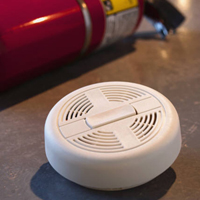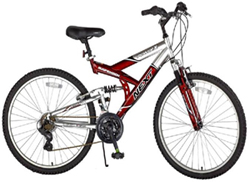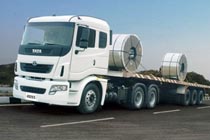Breakstone, White & Gluck Honored as 2011 Super Lawyers
 Breakstone, White & Gluck announces its lawyers have been recognized as 2011 Super Lawyers by Boston Magazine. It is the eighth consecutive year the firm’s lawyers have been honored.
Breakstone, White & Gluck announces its lawyers have been recognized as 2011 Super Lawyers by Boston Magazine. It is the eighth consecutive year the firm’s lawyers have been honored.
Attorney Marc L. Breakstone has been selected as one of the Top 100 New England Super Lawyers for 2011 and one of the Top 100 Massachusetts Super Lawyers for 2011. This is the second time Attorney Breakstone has been selected as one of the Top 100 New England Super Lawyers and the fifth time he has been selected one of the Top 100 Massachusetts Super Lawyers. In addition, Attorney Breakstone has been named a 2011 Massachusetts Super Lawyer for the seventh year in a row. Attorney Breakstone is a graduate of Northeastern University School of Law and specializes in personal injury and medical malpractice cases. Click here to read his bio.
Attorney Ronald E. Gluck has been named a 2011 Massachusetts Super Lawyer. He was selected to the list for the seventh consecutive year. He was also selected to the list of New England Super Lawyers for the fifth year in a row. Attorney Gluck specializes in catastrophic personal injury cases stemming from automobile accidents, public transportation disasters, construction accidents and medical device and pharmaceutical product liability. He is a graduate of the Case Western Reserve University School of Law. Click here to read his bio.
Attorney David W. White has been named a 2011 Massachusetts Super Lawyer. He has been selected for the list each year since 2004. He has also been selected twice to the list of Top 100 New England Super Lawyers and four times to the list of Top 100 Massachusetts Super Lawyers. Attorney White is a graduate of Northeastern University School of Law and specializes in personal injury, medical malpractice and bicycle accident cases. Click here to read his bio.
About Breakstone, White & Gluck, PC
Breakstone, White & Gluck, PC, is a Boston law firm which represents injured plaintiffs in personal injury and medical malpractice cases. The firm has established a reputation as one of the top Massachusetts personal injury law firms. Notable cases include the case against a surgeon who left a patient on the operating table to cash a check, and several multi-million dollar cases arising from medical malpractice, EMT malpractice and motor vehicle accidents.
About Super Lawyers
Super Lawyers selects attorneys using a rigorous, multiphase process that includes peer nominations and evaluations and independent research. Each candidate is evaluated on 12 indicators of peer recognition and professional achievement. The object is to create a credible, comprehensive and diverse listing of outstanding attorneys that can be used as a resource for attorneys and consumers searching for counsel.
Read More
Change Your Smoke Alarm Batteries for Daylight Saving Time
 On Sunday, Nov. 6, we turn clocks back an hour as Daylight Saving Time ends. The change from Daylight Saving Time is an important reminder to protect our family and homes by checking and changing the batteries in our smoke alarms and carbon monoxide detectors.
On Sunday, Nov. 6, we turn clocks back an hour as Daylight Saving Time ends. The change from Daylight Saving Time is an important reminder to protect our family and homes by checking and changing the batteries in our smoke alarms and carbon monoxide detectors.
Fire and carbon monoxide poisoning are great concerns as the cold weather arrives and residents make their home heating decisions. Each year, more than 150 people in the United States die from accidental non-fire related carbon monoxide (CO) poisoning. This poisoning is associated with consumer products, such as furnaces, stoves and water heaters.
Even more people die each year in fires. In 2010, 3,120 people were killed while another 17,720 suffered fire-related injuries, according to the National Fire Protection Association. Four out of five civilian fire deaths occurred in the home. These statistics make your work to prepare your home for the winter especially important.
Smoke Alarms: Massachusetts requires a smoke alarm be installed on every habitable level of a residence as well as the basement floor.
There are two types of smoke alarms, photoelectric and ionization. Effective April 5, 2010, only photoelectric smoke detectors are to be installed within 20 feet of kitchens and bathrooms with showers. These alarms are less sensitive and the goal is to reduce nuisance alarms that cause people to disable devices. Both photoelectric and ionization alarms are required in all other areas.
Carbon Monoxide Detectors: Since March 31, 2006, residences have been required to have working carbon monoxide alarms on every habitable level of the home or dwelling unit. Carbon monoxide is a colorless and odorless gas that results from incomplete burning of fuels. The first symptoms of poisoning are similar to the flu and include headache, fatigue and dizziness.
The requirements for meeting the smoke alarm and carbon monoxide detector laws can be met with separate units or with smoke alarms that have carbon monoxide detectors.
Read More
Halloween Safety and a Warning About One Candy
 Halloween is a much-anticipated night for children across Massachusetts, who are excited about dressing up as ghosts and goblins, going trick-or-treating and attending costume parties. Parents have a responsibility to protect children by talking to them beforehand about appropriate behavior and dangers to avoid. Here, the Massachusetts personal injury attorneys at Breakstone, White & Gluck of Boston offer tips to help parents and all adults keep the Halloween experience safe and fun for our youth:
Halloween is a much-anticipated night for children across Massachusetts, who are excited about dressing up as ghosts and goblins, going trick-or-treating and attending costume parties. Parents have a responsibility to protect children by talking to them beforehand about appropriate behavior and dangers to avoid. Here, the Massachusetts personal injury attorneys at Breakstone, White & Gluck of Boston offer tips to help parents and all adults keep the Halloween experience safe and fun for our youth:
- Never let young children go trick-or-treating without adult supervision.
- Take children for a test run of the trick-or-treat walking route during daytime hours.
- Remind children to look both ways before crossing the street and to utilize crosswalks when possible.
- Parents and children should always walk on sidewalks.
- Children should carry flashlights or glow sticks and wear reflective tape.
- Watch out for trick-or-treaters! Drive below the speed limit in residential areas and do not pass stopped vehicles in the roadway.
- Inspect treats before consumption. Discard all homemade goods and candy that poses a choking hazard.
- At your home, leave candles, pumpkins and lanterns in a place where no one can trip and injure themselves.
- Make sure costumes are flame-resistant and will not cause children to fall or trip.
- Click here for information on safe costumes from the Consumer Product Safety Commission.
A New Warning About One Type of Halloween Candy
A new government warning issued this week caught many by surprise as families prepare for Halloween. The Food and Drug Administration (FDA) reported there is a link between black licorice and an irregular hearth rhythm. If you’re 40 or older, eating two ounces of black licorice a day for at least two weeks could land you in the hospital with an irregular heart rhythm or arrhythmia.
The FDA says black licorice contains the compound glyrrhizin, which can cause the body’s potassium levels to fall. This can trigger abnormal heart rhythms, high blood pressure, edema, lethargy and congestive heart failure.
The good news? Licorice lovers can enjoy their candy in moderation. And if you have ever enjoyed too much licorice and experienced health problems, they are unlikely to reoccur unless you once again eat more than the recommended licorice limit. The FDA says all health complications end when black licorice consumption stops.
Click here for more information about the FDA’s Oct. 25, 2011 warning about black licorice.
Read More
FDA Considers Next Step for Transvaginal Mesh, Medical Device Approvals
A Food and Drug Administration (FDA) advisory panel has recommended that some transvaginal mesh products be reclassified as the process for approving mesh and other medical devices comes under scrutiny.
On July 13, the FDA updated a 2008 public health notification, reporting that complications from transvaginal mesh are not rare and that it is not clear that transvaginal mesh surgery is more effective than non-mesh repair of pelvic organ prolapse (POP). Having received over 3,800 reports of complications, the FDA urged surgeons to consider other options before performing transvaginal mesh surgery.
Since then, more than 600 women have filed lawsuits over complications from transvaginal mesh, which is surgically implanted to treat both POP and stress urinary incontinence (SUI). POP occurs when a women’s pelvic muscles and organs are weakened and stretched, often after child birth or hysterectomies.
Women reported painful complications such as internal mesh erosion, pain during intercourse, infection, bleeding, organ perforation and urinary problems. Corrective surgery is often required and is not always successful. In one report by Bloomberg News, a woman reported she had undergone 17 procedures to reverse damage from transvaginal mesh, including five surgeries, and is still suffering from the condition.
The FDA approved the first transvaginal mesh product, ProtoGen by Boston Scientific, in 1996. Two years later, Johnson & Johnson won approval for a similar device called Gynecare VT, but was not required to conduct human testing on it. Using the FDA’s 510(k) process for medical devices, Johnson & Johnson was allowed to bypass testing by claiming the device was “substantially equivalent” to the Boston Scientific mesh product.
The FDA approves 90 percent of medical devices under the 510(k) process, including defective hip implants and external heart defibrillators that have been subject to recalls in recent years.
Critics say the 510(k) process is flawed and needs to be overhauled. In the case of Boston Scientific, the Massachusetts manufacturer recalled its surgical mesh product in 1999 as other companies were just starting to bring their product to market. There are a total of nine manufacturers of transvaginal mesh products.
In January, the FDA announced it was considering 25 changes to the 510(k) system. In July, the non-profit U.S. Institute of Medicine issued a warning about it and Congress has pushed the FDA to make changes.
As for transvaginal mesh, the FDA convened an advisory panel to review the safety of the medical device in September. The 17-member panel recommended that some transvaginal mesh be reclassified as high-risk devices and require new studies be conducted to stay on the market. The FDA has yet to make a decision.
Read More
Focus on Seat Belt Use During National Teen Driver Safety Week
 Attention is on seat belts and occupant protection as the National Highway Traffic Safety Administration (NHTSA) observes National Teen Driver Safety Week from October 16 through October 22.
Attention is on seat belts and occupant protection as the National Highway Traffic Safety Administration (NHTSA) observes National Teen Driver Safety Week from October 16 through October 22.
Each year, the NHTSA hosts this week to educate the public on protecting teens behind the wheel.
The NHTSA reports teenage drivers and passengers are the least likely to wear seat belts. But seat belts are one of the most effective ways to travel safe. Most people who die in motor vehicle accidents are vehicle occupants, many of whom were not wearing seat belts. Less than 25 percent of traffic accident fatalities are pedestrians, bicyclists and motorcyclists, according to the NHTSA.
By contrast, in 2006 seat belts saved over 1,5000 lives nationwide among passengers over 4 years old, according to the NHTSA.
The NHTSA urges parents and teens to practice safety through seat belt use, by following graduated licensing laws, developing parent-teen contracts and avoiding alcohol consumption.
Massachusetts Junior Operator Law. Many states have implemented graduated licensing laws to place restrictions on teen driving. Under the Massachusetts Junior Operator Law, in the first six months of holding a license, operators under 18 cannot drive with another passenger under 18 years old. The lone exception is they can drive with a sibling as passenger. Teen drivers are also not allowed to drive between 12:30 a.m. and 5 a.m.
Parent-teen contracts. There is strength in a parent-teen contract when it comes to setting expectations. Contract forms are available from many insurance companies, auto clubs, state offices or you can develop your own. Click here for a parent-teen contract produced by the state of Massachusetts.
Address all areas of concern, including seat belt use, how many passengers are allowed in the car and how late teens can drive. This is important even if the state’s junior operator law covers all of your concerns. The contract is between you and your teenager to create an extra level of accountability.
Alcohol. While teens are below the minimum drinking age, they carry the greatest risk for death in an alcohol-related crash. In 2006, 31 percent 15- to 20-year-old drivers involved in fatal crashes had been drinking. This increases the importance of no-tolerance and accountability among parents, teachers, sports coaches and other respected adults.
Read More
DePuy Hip Implant Recall a Widespread Concern One Year Later
More than a year after DePuy Orthopaedics recalled two popular hip implants, the large number of patients affected and severity of injuries caused by metal-on-metal hip implants is starting to emerge.
The DePuy hip implant recall has broadened concern over all metal-on-metal hip implants. All-metal hip replacements are now on the track to become the largest and most expensive medical implant defect since 2007, when Medtronic recalled a defective heart device component associated with 7,700 complaints. An estimated 500,000 patients have received all-metal hip replacements.
In August 2010, DePuy recalled two ASR hip implants, the ASR XL Acetabular System, which is available to patients throughout the world, and the ASR Hip Resurfacing System, which is not available in the United States. The hip implants are defective because they cause friction between the metallic ball and socket components which are implanted to replace the femur and acetabulum.
DePuy recalled the defective medical devices after the Food and Drug Administration (FDA) received about 400 complaints in two years from patients. While most hip implants last for 15 years, data released at the time showed one in eight patients required a replacement surgery within five years of being surgically implanted with the defective DePuy hip implants.
The recalled DePuy hip implants can wear down and produce a substantial amount of metallic particles in patients’ bloodstreams. Patients reported signs of metallosis, including pain, swelling, problems walking and rashes. These may be symptoms of more serious problems such as the hip implant loosening, bone fractures, joint inflammation, hip dislocation and damage to the tissue, nerves and muscles near the implant.
In the first six months of 2011, the Food and Drug Administration (FDA) received more than 5,000 reports about problems with all-metal hip implants, according to an analysis by The New York Times. The Articular Surface Replacement (A.S.R.) recalled last year by DePuy Orthpaedics accounted for 75 percent of the complaints.
Another recent study in England found that all-metal hip implants were failing early at three times the rate of hip implants made from metal-and-plastic components.
Massachusetts General Hospital in Boston and other medical facilities across the country have reported seeing a growing number of patients requiring corrective surgery, according to The New York Times. In most cases, corrective surgery takes months of rehabilitation. In some cases, complications require longer medical supervision.
In May, the FDA ordered manufacturers of all-metal hips to develop studies determining how widespread device failures are and implications for patients. But it may be several years before results of those studies are available.
If you have a defective DePuy hip implant and are experiencing pain, it is important to contact the hospital where you received your implants immediately. You should also contact an experienced Massachusetts product liability lawyer. The product liability lawyers at Breakstone, White & Gluck of Boston are experienced in handling cases involving DePuy hip implant recalls and other defective medical devices. Call us today at 800-379-1244 or use our contact form.
Food Recalls Put Focus on Safe Preparation and Inspection
 Recent food recalls involving cantaloupe, ground beef and ground turkey have put a renewed emphasis on food safety.
Recent food recalls involving cantaloupe, ground beef and ground turkey have put a renewed emphasis on food safety.
The cantaloupe recall ranks as the worst in a decade, causing 13 deaths and sickening more than 70 people. In 1998, Listeria contamination in hot dogs and deli meats killed 21 people, according to the Centers for Disease Control and Prevention.
On September 14, Jensen Farms of Holly, Colorado voluntarily recalled their shipments of Rocky Ford whole cantaloupe because of the potential for Listeria monocytogenes contamination. The food recall impacted shipments to 17 states, including in Colorado, Texas, Pennsylvania, New York and New Jersey. Massachusetts did not receive shipments of the contaminated cantaloupe.
The cantaloupe recall has subsequently been expanded, with Carol’s Cuts LLC, a Kansas food processor, recalling 594 pounds of fresh-cut cantaloupe. Eight wrongful deaths and 55 cases of foodborne illness have been linked to the contaminated cantaloupe. Listeria can cause serious and sometimes fatal food poisoning. Complications range from nausea and high fever among the general public to miscarriage and stillbirths for pregnant women.
In other recall notices, on September 28 Tyson Fresh Meats of Kansas recalled 131 pounds of ground beef products that may be contaminated with E. coli, a bacterium that can cause a wide range of symptoms, including dehydration, kidney failure and death. The contaminated ground beef products were shipped to 14 states.
The recall was issued after an Ohio man became ill from food poisoning and authorities tested leftover ground beef collected from his home. The beef was contaminated with the virulent strain of E. coli known as O157:H7.
On September 11, Cargill Meat Solutions Corporation of Springdale, Arkansas recalled 185,000 pounds of ground turkey products for Salmonella contamination on September 11. No injuries have been reported in that food recall.
It is important to carefully inspect your food during preparation. The U.S. Department of Agriculture’s Food Safety and Inspection Service offers tips for safe food handling and inspection in its guide called, Check Your Steps: Food Safe Families.
Read More
Cambridge Leads Massachusetts in Bike Accidents
 Cambridge and Somerville are known as bike-friendly communities, but new state figures show they are also among the most dangerous places for cyclists in Massachusetts.
Cambridge and Somerville are known as bike-friendly communities, but new state figures show they are also among the most dangerous places for cyclists in Massachusetts.
Cambridge saw 400 bicycle accidents involving cars from 2002 to 2009, according to The 2009 Top Crash Locations Report, which was recently released by the Massachusetts Department of Transportation. Over the past decade, the city had more bike-and-car crashes than any other community in Massachusetts, a recent Boston Herald review found.
Eight of the top 10 areas for bike crashes were in Cambridge. The state’s most dangerous bicycling intersection was Inman Square in Cambridge and Somerville. From 2002 to 2009, there were 106 bike accidents around Hampshire and Cambridge streets.
Other Cambridge areas included several sections of Massachusetts Avenue, including through Alewife Brook Parkway on the Arlington border. Porter Square – at Massachusetts and Somerville avenues – had the third highest number of bike crashes.
The state’s bicycling population is growing as infrastructure improvements continue and new bike share programs begin. Boston and Salem began bike share programs this summer, while Somerville is expected to launch its program next year.
With this growth and changes in Massachusetts bicycling laws in recent years, it is important for both drivers and cyclists to understand the law and follow it. Here the Boston bicycle accident lawyers at Breakstone, White & Gluck share some basic tips:
- Motorists are required to report accidents with bicyclists resulting in more than $1,000 in property damage or personal injury. It is a good practice to report all accidents in case pain and injuries arise later.
- Leaving the scene of an accident causing personal injury is a crime in Massachusetts punishable by up to two years in jail.
- Motorists are required to identify themselves and the owner of the vehicle to the cyclist, even when bike accidents are not reported to police.
- Bicyclists are required to report all accidents they are involved with that cause personal injury or $100 or more in damage.
- When a bicyclist is injured in a car accident, the driver’s auto insurance provides up to $8,000 in Personal Injury Protection benefits (also known as no fault benefits). These benefits cover medical expenses and lost wages, even if the driver was not negligent
- If you are a cyclist, you can protect yourself by purchasing coverage for accidents. Coverage can be purchased through your car insurance policy.
Additional Bicycle Resources
Facts About Cycling in Massachusetts
What Every Massachusetts Bicyclist Needs to Know About Car Insurance
What to Do When Car and Bike Collide. Boston Globe. Sept. 25, 2011.
Read More
Walmart Recall of 91,000 Defective Bicycles; Specialized Also Issues Bike Recall
 Anyone who has recently purchased a $100 bike at Walmart wants to pay attention to a bicycle recall issued this week.
Anyone who has recently purchased a $100 bike at Walmart wants to pay attention to a bicycle recall issued this week.
Bridgeway International of Naples, Florida has recalled 91,000 “NEXT”-branded men’s 26-inch hybrid bicycles. The products have a defective bicycle chain that can break and cause the bicyclist to lose control and fall in a bicycle accident.
The importer is aware of 11 reported incidents, including nine involving lacerations and other personal injuries.
The bicycles are red and orange and are marked “Power X” and “Suspension.” They were sold at Walmart from February 2011 through July 2011 for about $100. The model numbers are LBH2611M and LBH2611M2. The bicycles were manufactured in China.
Consumers are advised to stop using the recalled bicycles. They can contact the company for a free repair at 877-934-3228 or visit www.powerxbike.com for more information.
Defective Specialized Bicycle Recall. Separately, 14,200 bicycles with a defective brake component were recalled this week by Specialized Bicycle Components, Inc., a Morgan Hill, California distributor.
The bicycles have Advanced Group carbon forks and were manufactured by Advance Group, of Taiwan. The brake component housed within the bicycle’s carbon fork can disengage from the fork, allowing the brakes to contact the wheel spokes while rotating, posing a risk for falls and bicycle accidents.
There have been two reports of brake components disengaging from the carbon fork. No injuries have been reported.
The bikes were sold at authorized specialized retailers nationwide from June 2010 through August 2011 for $700 to $2,000. Consumers should stop riding these bicycles and return them to an authorized specialized retailer for a free repair or replacement. More information is available at 877-808-8154 or www.specialized.com.
Read More
Unsecured Truck Load Accidents Are Growing Problem in Massachusetts, Nationwide
 Unsecured truck loads are a growing problem endangering drivers across the country. Massachusetts has seen two of these fatal car accidents in the past two months.
Unsecured truck loads are a growing problem endangering drivers across the country. Massachusetts has seen two of these fatal car accidents in the past two months.
In 2004, the AAA Foundation for Traffic Safety reported 25,000 motor vehicle accidents are caused each year by unsecured materials on highways.
The problem is most prevalent in California, which had 32 million registered vehicles in 2007 – more than twice the number of any other state, according to the New York Times. The California state transportation department reported that over a two-year period between 2005 and 2007, 155 people were killed as the result of debris from unsecured truck loads.
In some of these fatal trucking accidents, authorities file criminal charges against drivers and other employees. When these motor vehicle accidents result from negligence, drivers and companies may also face wrongful death lawsuits in civil court.
Some states have strengthened the penalty for accidents involving tractor-trailers carrying unsecured loads such as construction equipment, building supplies, wood and furniture. Several years ago, Washington state passed Maria’s Law, named for Maria Federici, a young woman in her 20s who was blinded and disfigured when a piece of furniture flew off a trailer and smashed her windshield.
Maria’s Law made hauling an unsecured load causing injury a gross misdemeanor, carrying maximum penalty of one year in jail and a $5,000 fine.
In Massachusetts, a 27-year-old Lynn man died Sept. 19 when a 400-pound tire being hauled by a truck broke loose on Interstate 93 in Somerville. The truck was owned by Ryder Truck in Braintree and leased to Sullivan Tire. The tires spilled across the median and smashed the windshield of the Lynn man’s car, throwing his car toward a retaining wall.
The 2005 Freightliner M2 flatbed truck was carrying tires containing a tire fill. This material made them heavier than standard tires filled with air.
On Aug. 12, a backhoe fell off a National Grid truck traveling on Interstate 495 in Southborough. The backhoe struck a van, killing an elderly passenger and causing serious personal injuries to others in the vehicle.
Click here to read a 2007 New York Times article about unsecured truck loads.
Contact Breakstone, White & Gluck today
The Massachusetts motor vehicle accident lawyers at Breakstone, White & Gluck are experienced in handling complex traffic accidents involving unsecured truck loads on the highways. Our attorneys represent clients throughout Greater Boston, from Boston and Cambridge to Framingham to Worcester. If you have been injured, contact us today for a free legal consultation. We can be reached at 800-379-1244 or use our contact form.

